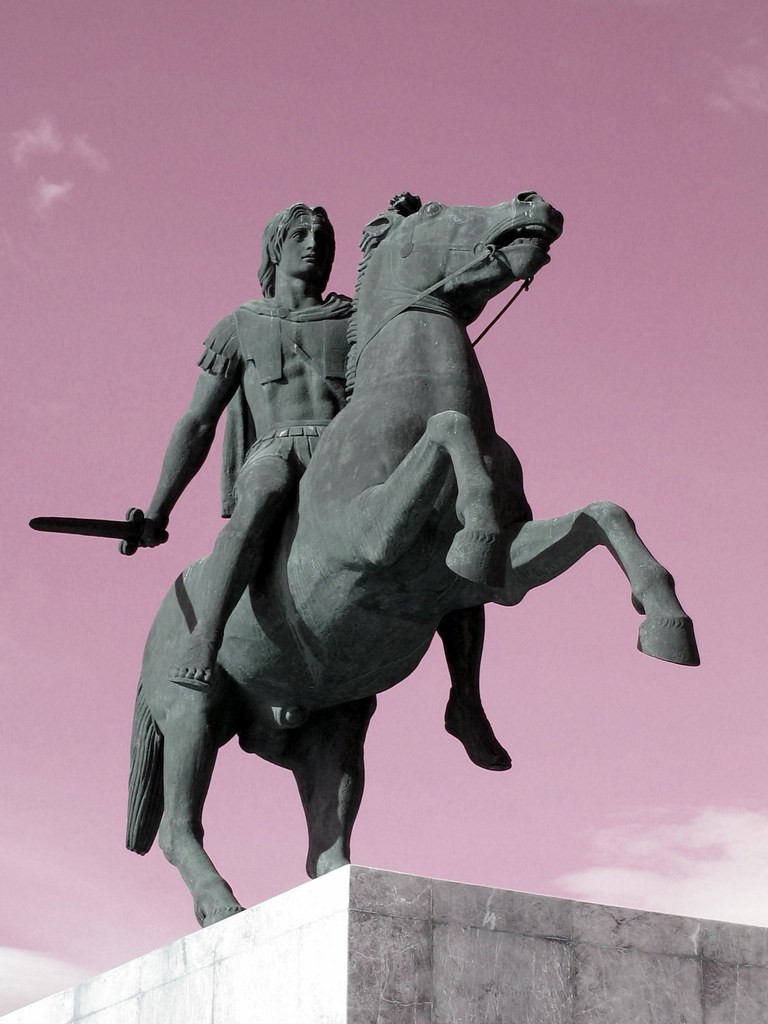Netflix has released a new six-part miniseries that explores the life and legacy of Alexander the Great, one of the most influential and controversial figures in history. The miniseries, titled Alexander the Making of a God, combines expert interviews and scripted reenactments to tell the story of Alexander’s conquests, achievements, and personal relationships. Nevertheless, there are certain aspects of this miniseries that might give rise to controversy, raising doubts about its authenticity and reliability among some viewers. So, what is truly going on? What exactly is the reason for this? Let’s delve deeper into this article to get a sneak preview of this miniseries.
The show aims to present a balanced and nuanced portrait of Alexander, who is often depicted as either a hero or a villain in popular culture. The show explores his military genius, his cultural impact, his visionary ambitions, and his complex personality. It also delves into some of the controversies and mysteries surrounding his life, such as his sexuality, his relationship with his father Philip II, his death, and his legacy.
One of the most controversial aspects of the show is its depiction of Alexander’s love life, which has been a source of debate and speculation for centuries. The show portrays Alexander as bisexual, having romantic and sexual relationships with both men and women, including his childhood friend Hephaestion, his Persian wife Roxana, and his eunuch lover Bagoas. The show also suggests that Alexander may have been in love with his mother Olympias, who had a strong influence on him.

The show’s portrayal of Alexander’s sexuality has drawn criticism from some historians and viewers, who argue that it is based on unreliable sources, anachronistic interpretations, and sensationalism. They claim that the show exaggerates or invents Alexander’s sexual encounters, and ignores the historical and cultural context of his time. They also accuse the show of pandering to modern audiences and agendas, and of disrespecting Alexander’s legacy and reputation.
However, the show’s creators and supporters defend their artistic choices, saying that they are based on solid research, historical evidence, and plausible scenarios. They argue that the show does not impose a modern view of sexuality on Alexander, but rather tries to understand and portray him as a human being, with all his flaws and virtues. Dr. Salima Ikram, a professor at the American University of Cairo, stated in this Netflix series that Hephaestion is not only Alexander’s precious companion, but may also be his beloved. Robin Lane Fox, a modern historian, also agreed with this point. He also participated in Oliver Stone’s 2004 film “Alexander” as a historical advisor. In his book “Alexander the Great” published in 1973, he explored the relationship between them and stressed the depth of their connection. The creators and supporters also point out that the show does not shy away from showing Alexander’s darker side, such as his violence, arrogance, paranoia, and megalomania.
The show’s quality and accuracy aside, it is undeniable that it has sparked a lot of interest and discussion about Alexander the Great, who remains a fascinating and relevant figure in history. The show offers a captivating and provocative glimpse into his world, his achievements, and his challenges. Whether one agrees or disagrees with the show’s perspective, it is worth watching for anyone who wants to learn more about Alexander the Great and his impact on the world.
Related posts:
New NETFLIX Docudrama Questions Alexander the Great’s Love Life …
‘Alexander: The Making Of A God’ Netflix Review: Stream It Or … – Decider
‘Alexander The Great’ Hybrid Docu-drama Series Set to Release on Netflix





